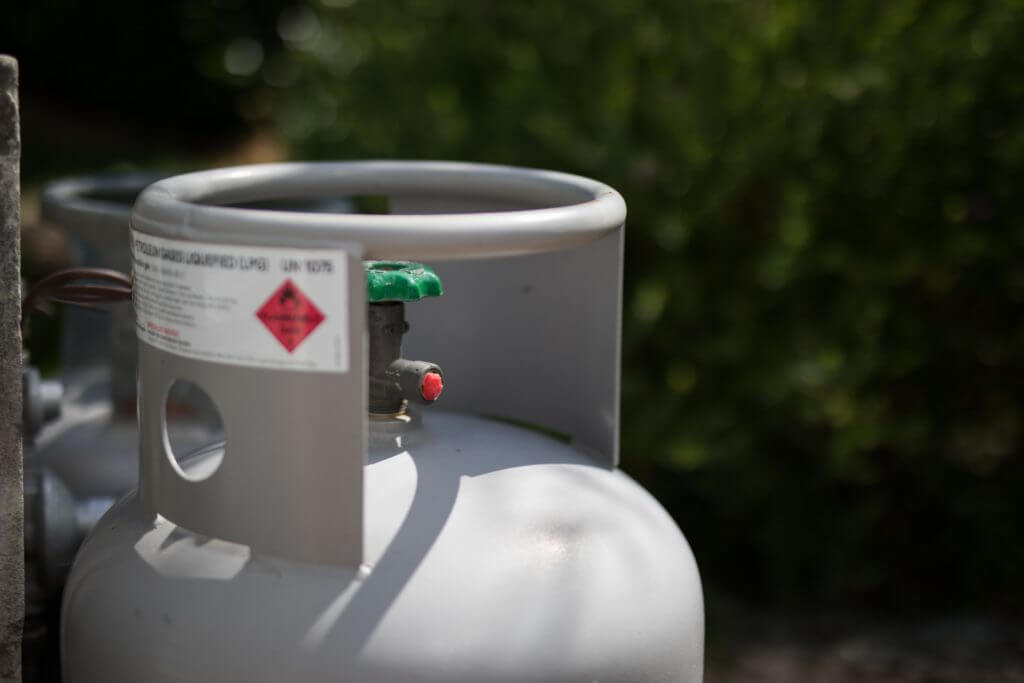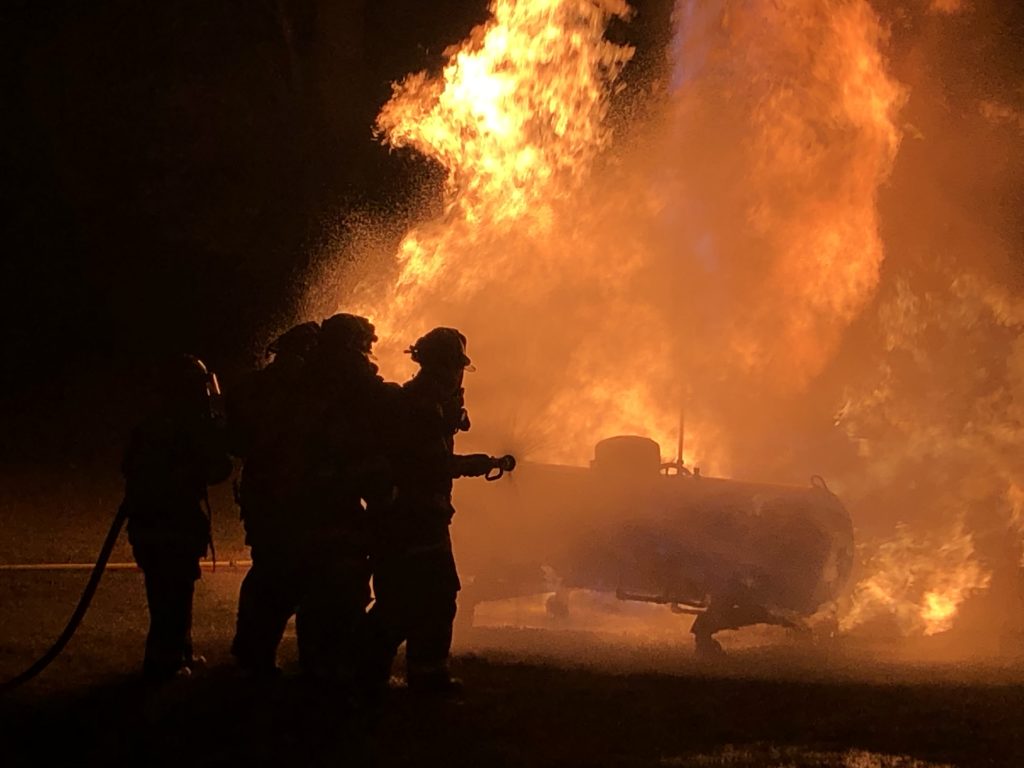Gas grills are a common household item in Georgia and across the U.S. When a propane tank has defective or damaged parts – or is filled or handled improperly – it can cause an explosion. Injuries from a gas explosion can be devastating and change your life forever. Some injuries can be so severe that they lead to death.
The experienced personal injury attorneys at Blasingame, Burch, Garrard & Ashley, P.C. help victims who have been injured by a propane tank explosion because of someone else’s negligence.
According to the Hearth, Patio & Barbecue Association (HPBA)’s latest consumer research, 80% of all homeowners and 70% of all households own at least one grill or smoker. Like any flammable liquid, propane tanks should be handled with great care. The tanks must be built, filled, and maintained properly to ensure handlers and others are protected from potential explosions or fires.
If you have catastrophic injuries from a propane tank explosion or your loved one was killed in a propane tank explosion, call us 24/7 at 706-354-4000 and speak to a personal injury attorney. If it’s after hours or on a weekend or holiday, hit the prompt to speak to a personal injury attorney immediately.

A History of Results
We have an established track record of bringing our clients the results they expect and deserve. We have recovered millions of dollars for our clients, and we know how to fight the insurance companies and medical facilities.
What is Propane?

Propane is an odorless, flammable gas that when stored in a tank is pressurized and turns into liquid. When the valve on a propane tank is opened, the gas travels into the grill through a hose. When liquid propane changes into a gas, the temperature drops to approximately -43.6 F, which is why a propane tank feels cold to the touch.
Propane gas tanks may also be used to heat homes, water, dryers, fireplaces, generators, and swimming pools or hot tubs. There are also portable propane camping stoves.
What Causes a Propane Gas Tank Explosion?
When propane gas is leaked into the air and mixed with oxygen, it becomes highly explosive. For this reason, it’s essential that anyone handling and/or selling a propane tank use great care to follow all Georgia rules and regulations for liquefied petroleum gases. Failure to do so can cause catastrophic injuries or death if a propane tank explodes.
Some causes of propane tank explosions include, but are not limited to:
- A defective or damaged tank
- A defective or damaged pressure valve or other tank parts
- Improper filling or refilling
- Improper reconnection

Rules and Regulations for Liquefied Petroleum Gases
Georgia has rules and regulations that are enforced jointly by the Georgia Safety Fire Commissioner and the State Fire Marshal. Federal regulations for dispensing and refilling propane tanks are set by the National Fire Protection Agency (NFPA), the Department of Transportation (DOT), and the Occupational Safety and Health Administration (OSHA).
Some of the state and federal rules for propane tank handlers and sellers include but are not limited to:
- License requirements issued by the Safety Fire Division.
- Ongoing training for proper handling procedures, certified by the Georgia State Fire Marshal’s Office for the job function each person performs.
- Safety precautions for storing and dispensing propane tanks and equipment.
- Tank inspection requirements before refilling a used tank.
- Filling and refilling requirements based on weight and/or volume.
Companies that sell, fill, refill, or store propane tanks for consumers are responsible for obtaining the proper licensing. They are also required to train all employees who handle propane tanks and inspect tanks before refilling them to ensure the tanks and other parts are not defective or damaged. Companies must also fill tanks by weight or volume properly and store them safely.
The 80% Rule for Refilling Propane Tanks
Propane tanks smaller than 200 pounds must be refilled by weight. Because propane expands when heated, there’s an industry-standard called the 80% rule. To allow for expansion, propane tanks should only be filled to 80% capacity. The extra space in the tank allows for pressure build-up when the tank is hot. If a tank is overfilled, it should not be used. A safety device on the tank releases the valve when a tank is overfilled, causing propane gas to leak. The gas is released to make room in the tank. When the gas hits oxygen, it is highly flammable and if a grill or other fire source is lit, it can cause an explosion.
Many victims of a propane explosion have no warning because propane is odorless. While propane companies do add a chemical called mercaptan to give it a distinctive “rotten egg” smell, odorant fading can occur through absorption over time or through an oxidative process when there is air, water, or rust in a tank.
Common Injuries from a Propane Tank Explosion

A propane tank fire or explosion can cause serious injuries, including death. Some common injuries may include, but are not limited to:
- Second- and third-degree burns
- Severe lacerations from shrapnel
- Exposure to toxic vapors
- Traumatic brain injuries
- Post-Traumatic Stress Disorder (PTSD) and other emotional and psychological trauma
- Amputation
- Hearing loss
- Eye injuries
- Fire damage
- Death
A propane tank explosion can cause life-altering, traumatic injuries, and extensive property damage. If an explosion occurs because of someone else’s negligence, you have the right to pursue monetary compensation for your damages through a personal injury claim. An experienced personal injury attorney can help.
Who is Liable for a Propane Tank Explosion?
The circumstances of each propane tank explosion must be investigated thoroughly to determine who may be liable. A list of potential entities that may be held liable includes, but is not limited to:
- Manufacturers of a defective tank
- Manufacturers of defective propane tank parts
- A company that recycles damaged or defective tanks
- Anyone who fills a propane tank improperly and the company responsible for them
- Companies and individuals responsible for safely storing propane tanks on their property
- Companies and individuals responsible for training employees and handlers of propane tanks
Should I Hire an Attorney?
A propane tank explosion may be the result of a violation of safety rules and regulations. If a company fails to adequately train its employees, sells defective or damaged tanks, or doesn’t refill propane tanks using the 80% rule, it can cause a leak and subsequent explosion.
If you have been injured, or a family member has been injured or killed by a propane tank explosion, you may be facing steep financial damages. You may have also incurred significant property damage as a result of an explosion or fire. If the explosion occurred because of someone else’s negligent practices, you have the right to pursue compensation for your damages.
The BBGA Difference
The skilled personal injury attorneys at BBGA are well-versed in propane tank rules and regulations. They can investigate what caused the explosion, assist you in determining whether a company is up to code with state and federal standards, and work with experts such as doctors, life care planners, fire safety experts, and industry specialists that can be used in expert witness preparation and cross-examination.
We work closely with medical professionals, accident reconstruction experts, witnesses, and other professionals to establish the cause of the injuries and prove damages. If negligence is found, we will protect your interests by pursuing a case against the parties involved, and if necessary, by representing you at trial.
Contact Us
Please call our office at 706-354-4000 to schedule a free consultation or fill out our contact form to tell us more about your potential case. There is no cost unless we recover money for you in your case.
